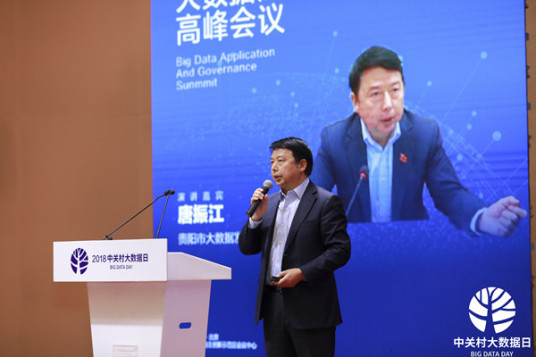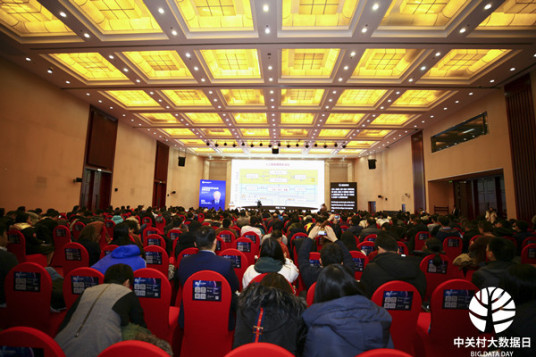The Big Data Application and Governance Summit brought together representatives from government, enterprises, research institutes and big data organizations across the country in December 2018.
Tang Zhenjiang, director of the Big Data Development Management Committee of Guiyang in Guizhou province, attended the summit and delivered a keynote speech at its opening ceremony in which he told a story about how big data changes a city.
"Big data represents new technologies, resources, industries and a new era," said Tang. Nowadays, nobody will disagree because big data, a new driving force, has greatly boosted the development of modern society.
 |
|
Tang Zhenjiang, director of the Big Data Development Management Committee of Guiyang, delivers a speech at the opening ceremony. [Photo provided to chinadaily.com.cn] |
Five years ago, when Guiyang first proposed developing big data many people had their doubts. Now five years have passed, and the same people can observe the new vigor that big data has given to the city.
Tang Zhenjiang mentioned in his speech:"With the establishment of the big data development strategy, the application of big data promoted the development of Guiyang's digital and social economy. Guiyang's economic growth rate has ranked first among China’s capital cities for five years in a row. Now, we can say with certainty that big data has made a huge change to Guiyang."
Guiyang and Beijing decided to work together in the field of big data at the Zhongguancun Convention Center on Sep 8, 2013. Guizhou has since then maintained close ties with Beijing and Zhongguancun. Tang Zhenjiang believes that Zhongguancun was the starting point for the development of big data in Guizhou.
Backed by Zhongguancun Science Park, Guiyang has achieved good results in the field of big data in recent years. In the "2018 White Paper on the Development and Employment of China's Digital Economy", recently released by China's Information and Communication Research Institute, the growth rate of Guizhou's digital economy reached 37.2%, ranking first in the country.
The "White Paper on the Development of China's Top 100 Cities in the Digital Economy" compiled by CCID Consulting in November 2018 also ranks Guiyang as one of the top 100 cities in China, with a resource-based digital economy developed far beyond its GDP ranking.
 |
|
Representatives from government, enterprises, research institutes and big data organizations exchange ideas at the summit. [Photo provided to chinadaily.com.cn] |
In addition, international society has recognized the development of Guiyang in recent years. In the Milken Institute's "Best-Performing Cities China Index", Guizhou's development of digital economy was highly rated.
The report pointed out that Guizhou has developed rapidly in new science and technologies. It has become China's first national comprehensive experimental area of big data, and made many innovations and breakthroughs in the field.
According to Tang Zhenjiang, Guizhou is a leader in digital economy in four ways. The first is to promote digital industrialization as a new driving force; the second is to promote industrial digitalization and build a new developmental system; the third is to improve the big data supporting system to protect the development of the digital economy; the fourth is to step up efforts to build a Chinese "Data Valley", creating a promising future for the industry's development.
In developing big-data industrialization, Guiyang has built an ecosystem in the industry and created ten industrial clusters to boost industrial innovation and entrepreneurship.
The construction of a series of projects such as the Big Data Industry Ecological Base, Guiyang Big Data Transaction, and Guiyang Big Data Security Industrial Park has promoted the expansion of Guiyang's big data industry.
Big data is widely used in agriculture, manufacturing, and service industries. Already combined with intelligent manufacturing and used in applications for agriculture and the service industry, big data will be integrated with tourism, trade, logistics, finance, population information, health and other fields.
According to Tang, the next step is to focus on the five new fields of mobile communication, the Internet of Things, quantum information, artificial intelligence and blockchains to promote the development of the big-data industry to a higher level.
At the same time, Guiyang will also build an avenue of big data to be more than 20 kilometers long and cover nearly 100 square kilometers. The roadway will showcase big data's applications and its intelligent governance.